Woman Power
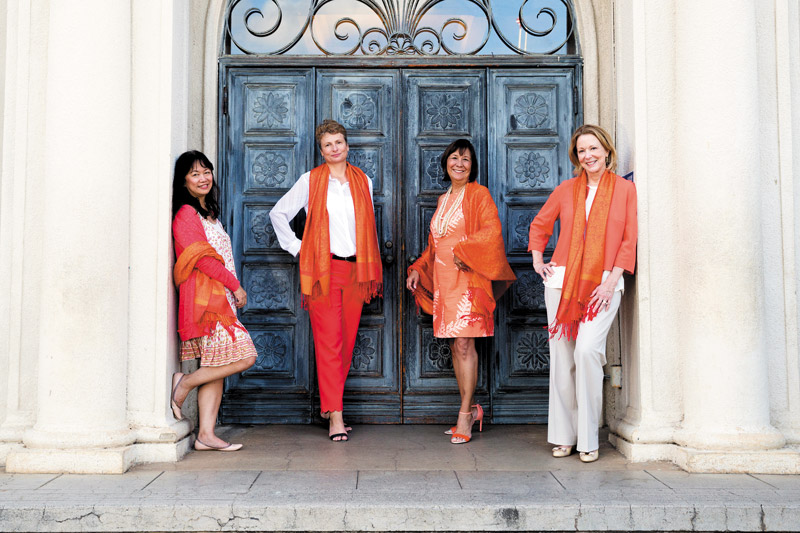
Leaders in the spotlight: (from left) Connie Mitchell, Bettina Mehnert, Crystal Rose and Susan Murray
YWCA Oahu presents its 40th annual LeaderLuncheon June 14, honoring four accomplished women who exemplify its mission
They are women. Hear them roar!
YWCA knows the power of women as a community-based organization that supports them through housing, economic self-sufficiency, professional development, health and wellness.
Founded in 1900, YWCA today serves more than 25 million women and girls in 125 countries worldwide. That’s a force to be reckoned with. They are invincible.
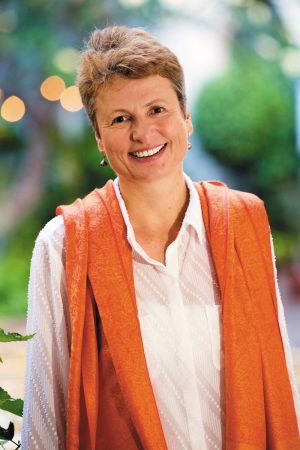
Bettina Mehnert
There is likely not a parent or female who hasn’t been touched by the services of YWCA, particularly in self-development pursuits such as swimming lessons, dance and craft classes. When one grows up with such fun, nurturing activities, the benefits are long-lasting.
To show how that translates to business and community success, YWCA Oahu will stage its 40th annual LeaderLuncheon from noon to 1:30 p.m. June 14 at Sheraton Waikiki’s Hawaii Ballroom.
In the spotlight on that occasion will be four accomplished women who exemplify the mission of the YWCA. Honorees for 2017 are Bet-tina Mehnert, president and chief executive officer, Architects Hawaii Ltd.; Connie Mitchell, executive director, Institute for Human Services; Susan Murray, senior vice president, The Queen’s Health Systems, and chief operating officer, Queen’s West Oahu; and Crystal Rose, founding partner, Bays Lung Rose Holma.
Joining a class of 175 honorees, they are the faces of groundbreaking work in community and personal achievement. They are role models for the next generation of women leaders.
We asked each to define effective leadership and to share their stories. Hear them roar.
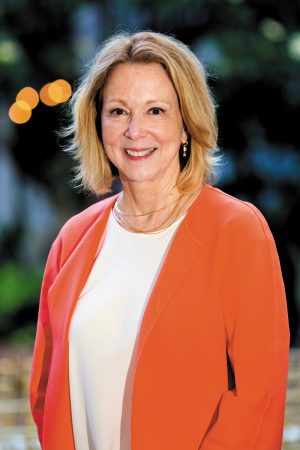
Susan Murray
Bettina Mehnert
Meet AHL’s first female principal, director, chief operating officer, president and CEO. Under Mehnert’s guidance, AHL elevated its reputation as a high-tech firm and earned international awards for innovative design.
The German native helped spearhead AHL’s pro bono program that donates 1 percent of its hours to a design or planning project for local nonprofits. She recently was recognized as a fellow at American Institute of Architecture.
“I believe that the most effective leaders don’t just possess strengths in one area but are able to balance a number of different things,” she says. “They must have sound technical knowledge as well as the experience to know when to trust the proverbial gut.”
She reflects: “Architecture is an amazing field because it touches so many other entities throughout the process of creating a building. Any person who is able to create winwin processes and solutions is a good leader who makes a far-reaching difference.”
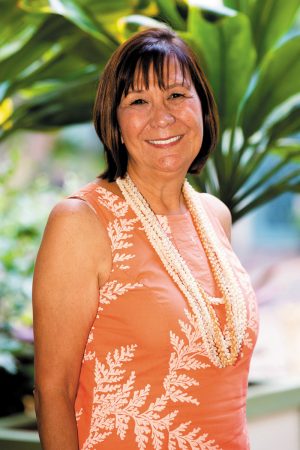
Crystal Rose
She asserts: “The world is changing at an exponential rate. Our jobs might look very different soon. For example, when I started to work, we drew by hand. This is something unimaginable today.
“We need to know what the future might look like, yet it can be difficult. Schools are finding themselves in the situation of rethinking what is taught because, by the time students graduate, skills might be obsolete. So the challenge is to determine what skills are relevant. Critical thinking and creativity remain important.”
How does Mehnert measure success?
“By being able to sleep at night,” she says. Amen.
Connie Mitchell
This inspired leader has led the Institute for Human Service and has stood at the forefront of addressing homelessness in Hawaii for more than 10 years. Prior to IHS, Mitchell established a nurse-run rural clinic on Hawaii island, was director of nursing at Hawaii State Hospital, where she helped settle a consent decree with the U.S. Department of Justice, and served as pastoral associate at Kailua Christian Church.
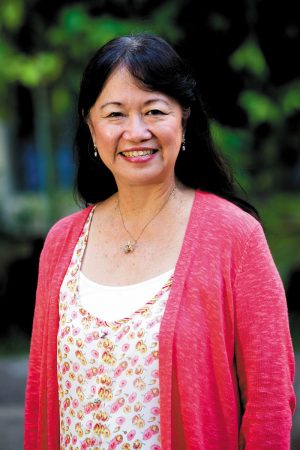
Connie Mitchell
“Effective leadership encompasses constant vigilance on what’s happening around you,” she offers. “The forces of change have refined the context of providing social services.
“Homelessness leadership, for example, once simply required people who have compassion. Today it’s about finding smart solutions and taking the time to understand what each person really needs.
“It’s about listening intently, being willing to think differently, and coming up with realistic solutions.”
“On the other hand,” she asserts, “we can’t just study issues forever. We must be willing to be decisive and know there are opportunities for course corrections along the way. If we don’t make a decision, that in itself is a decision.”
The McKinley High School grad is an exponent of purposeful collaboration.
“Group wisdom can generate better solutions for complex issues,” she says.
“Emphasis on technology can depersonalize relationships. We can’t let that interfere with what makes us a community. We are real people, not robots.”
To tap into the fun side of Mitchell, you might challenge her to a game of pool on a Sunday night. She’s taken it up as a way to relax with friends and is pretty adept at calling the shots.
Susan Murray
Unbridled passion marks Murray’s triumphs. After working in hospitals in Hawaii, Louisiana and Tennessee, she joined The Queen’s Health Systems to renovate, open and lead Queen’s Medical Center-West Oahu. Since opening in 2014, Murray has provided vitally needed new services and completed a campus master plan to accommodate the rapid growth of Oahu’s Westside communities.
“Effective leadership is a strong, viable vision of what needs to be done. It is not about self,” she claims. “Things that get in the way are speed bumps rather than obstacles or walls. In health care, one must be agile and adaptive because it is an ever-changing environment. Leaders have to be adept at transformational change. I was reminded of that when someone asked whether we’d rather hold people accountable or have accountable people.”
Murray warns that Hawaii’s next generation of leaders must face with the implications of an aging population. “Solutions will come from partnerships with physicians, insurers and public-private interests,” she suggests. “Hawaii can be a forerunner and model in that regard (as it was in pioneering prepaid health care).
“Like the Y changes lives with its programs, purposeful reform can provide viable solutions,” she says. “We’ve got a lot of talent in Hawaii, including women who accomplish a lot with high integrity.
“It’s the work of our hearts,” Murray contends.
Crystal Rose
Shared values with clients drive this Hilo native’s formula for success. Rose focuses on real estate, business, construction and trust litigation at a law firm that she founded with partners in 1986. She has taken on some of the largest and most complex civil cases that have reshaped Hawaii’s business landscape. She also is an expert in corporate governance.
“I am a product of the YWCA, so I am honored and humbled,” Rose says of her Leadership distinction. “I have fond memories of my days at the Y in Hilo, where I learned arts and crafts that I still do today.”
In a field traditionally dominated by men, Rose notes that women now outnumber men in law schools.
“Effective leadership means having passion for a goal or objective that is greater than self and adds value to the community,” she says. “They must be strategic problem solvers.”
The Kamehameha School graduate suggests that her client and former Kamehameha Schools trustee Oswald “Oz” Stender is an admirable servant leader.
“He personally reformed one of the largest and most influential local institutions,” she says. “What he did was greater than self. He did the right things at the right time.
“It’s all about having core values that align with others. I take a long-term view of client relationships. It’s a marathon, not a sprint.
“I measure success by whether actions add value and reach the broadest number of people in the process,” she adds. “I assess the impact we’ve made and, significantly, whether we’ve helped the next generation.
“Education is an equalizer; it has made me who I am today,” she states. “But one of the challenges in our field is access to education. Law school is very expensive, and some schools (Whittier College, for instance) have closed due to dwindling enrollment.
“But law studies are purposeful for many different fields,” she suggests. “Law background is useful in government, business and nonprofit enterprises.”
Lest we think the YWCA honorees are all about driven success, we are not surprised to know that each is well rounded with accomplished side interests.
Rose, for instance, has studied hula kahiko at Halau Mohala Ilima for the past 20 years. Don’t expect to set a business appointment with her on Monday evenings. That’s reserved for hula class.
No one can sway her from that.
Concluding wahine wisdom: If they have to, they can do anything. They are strong, They are invincible. They are woman.






